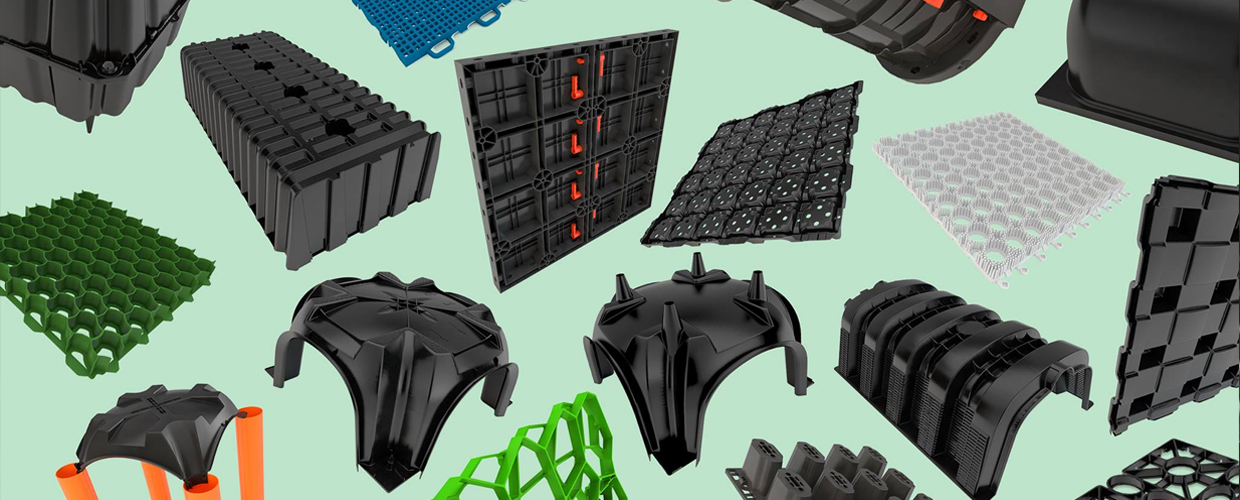“New” terms for civil engineers and architects
16 October 2019

Climate crisis
involves terms ‘climate change’ and ‘global warming’. Span of changes on the planet that caused the rise of the global temperature and sea levels, urged the scientists to find the term that causes stronger neurological response, and the word ‘change was replaced with the word ‘crisis’. Regardless of terminology, problems of our polluted and endangered planet are here and need serious actions to be mitigated.
Resilience
is the ability of the urban area to absorb and recover after causes that endanger it – hurricanes, heavy rainfalls, earthquakes, floodings etc. In conditions of ever growing danger from these factors, cities must contain more absorbing surfaces like green roofs, parks, or lawns, more draining pavements or parking lots to slow down the water run-off, and more greenery, in order to resist higher and higher temperatures.
Life cycle assessment
is the analysis of a product’s impact on the environment, from raw materials necessary for its production, until its use and installation on the construction site. The analysis continues with use and exploitation of a building, and its eventual deconstruction and recycle process. Our products are produced from the recycled plastics, and are all recyclable.
Geoplast products
Zero waste
is the global goal of non-disposing the waste onto the landfills or in the oceans, but to recycle and reuse it whenever possible. Besides solid waste, food waste is the largest pollutant and can not be recycled. Many cities have joined the battle for Zero Waste until 2030, aiming to reduce as much as possible solid remains of products or materials used.
Urban heat island
is any urban area that emits the temperature higher than the surrounding area (usually rural, green, afforested, etc.). The built environment is literally the ‘cover’ of the soil with weaker performances in terms of temperature regulation. Besides temperature issue, the urban areas deal with abundant rainwater that falls and incapability to absorb it. Our green products like Completa and Drainroof help decrease this impact creating green roofs with improved performances of slow retaining and releasing rainwater.
Geoplast products and solutions: Completa, Drainroof, green products
Rainwater harvesting
is the accumulation of rainwater instead of its release into sewage or the ground. The water can be accumulated in underground basins (Drening, Drainpanel), in the underground accumulation tanks (New Elevetor Tank). The water can be reused for irrigation, purification, or the fire protection.
Geoplast products and solutions: Drening, Drainpanel, New Elevetor Tank
Rainwater drainage
is the process of speeding up the drainage of rainwater into the subsoil. The process recharges the groundwater more quickly and helps to reconstruct the natural water cycle. Too much water drained superficially causes excess evaporation in the seas and oceans and consequently an increase in rainy events.
Geoplast products and solutions: Drening, Drainpanel, New Elevetor Tank, Geocell
Pollution prevention
comprises of actions which reduce or eliminate pollution caused by the industry. Since the construction industry is one of the main global pollutants emitting CO2 mainly from the concrete production, the goal is to decrease the amount of concrete. Our slabs and foundations products help decrease the concrete volume embedded into the buildings. At the same time, these solutions decrease the weight of the overall structures, improving their seismic response.
Geoplast products and solutions: Slabs solutions, Foundations solutions
Lean construction
is the trend of maximizing efficiency of the construction works and minimizing waste and costs. Efficient process means work done on time, with less manpower, and with improved safety on the construction site. Our foundations, slabs, and formwork products are all used in different phases of the construction works, improving efficiency of each one of them.
Sustainable profitability
means cost reduction due to lower machinery needs, lean construction, less manpower, lower elements weights, less materials, equipment used, and increased real estate price. Well planned works and efficient use of sustainable and lean products make the process more profitable. Besides this, the price of buildings built according to sustainable principles rises with time. These buildings also don’t require any additional interventions later to become more resilient to floodings or rise of temperature.
Wellness
is the criteria not less important than those that provide efficient workflow for example. Efficient workflow does improve the construction process, less concrete used improves the building and pollutes less, but the building has to contribute to the well-being of its inhabitants while living in it. We have created products that directly eliminate harmful sources. Modulo, Multimodulo, and New Elevetor create crawl spaces in foundations, providing the airflow that eliminates radon and other harmful gases that can break through the structure into the interior. Our green product Wall-Y improve the air quality inside the building, while Completa and Drainroof provide better thermic insulation for the interior and impact the local climate with greenery.
Geoplast products and solutions: Modulo, Multimodulo, New Elevetor, Completa, Drainroof, Wall-Y
Hedonistic sustainability
is the term created by the Danish starchitect Bjarke Ingels. This term embodies more values than sustainability ever had. It’s not just about saving nature and providing clean air and water, but also about making our environment more healthy and pleasant. Architecture, according to BIG, has to be not just or simply sustainable, but also optimistic and even playful. His latest works prove this.
